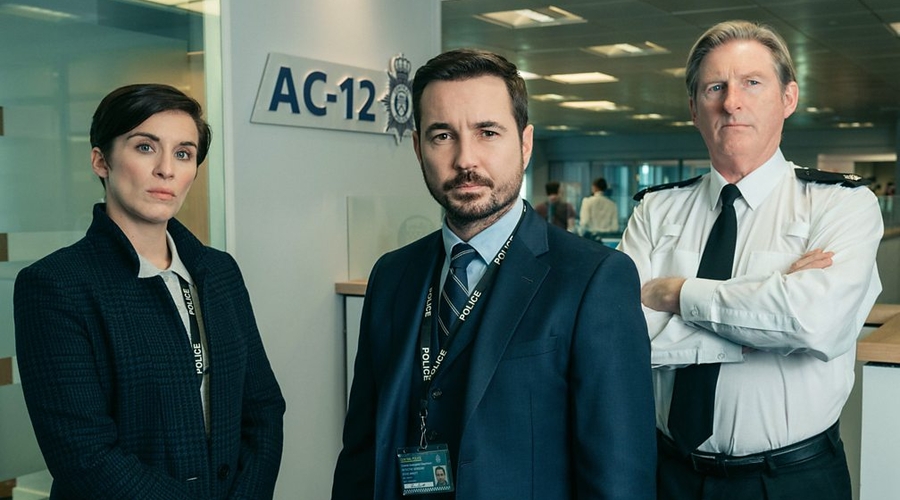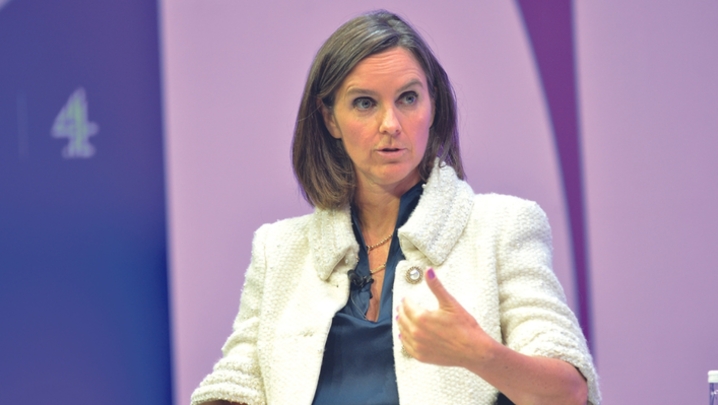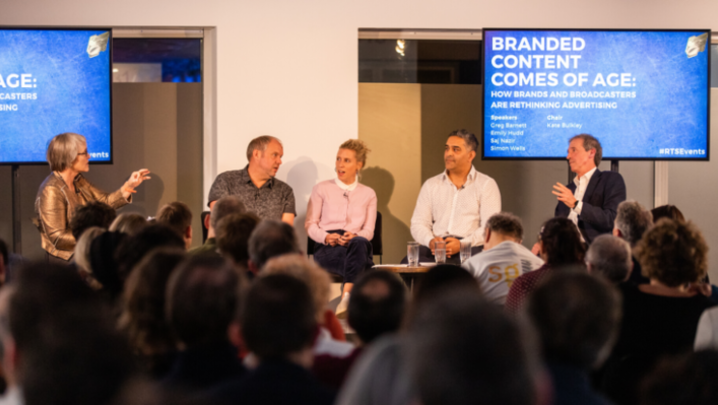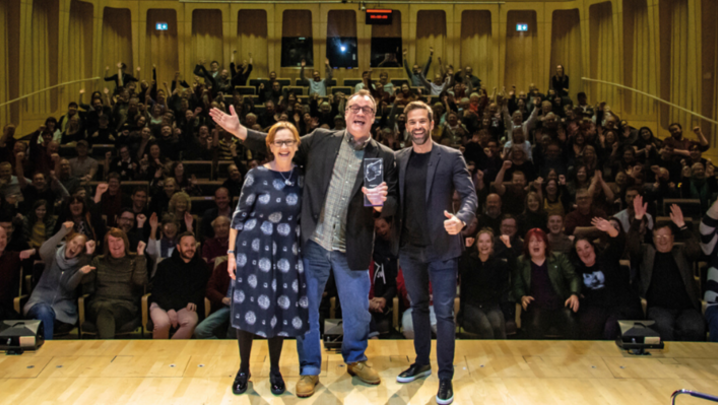Huge global commercial opportunities exist for TV talent based outside London, Julian Bellamy tells the Creative Cities Convention in Cardiff. Huw Rossiter reports
ITV Studios’ Managing Director, Julian Bellamy, wants people to know that he is open for business for creative talent and great ideas – wherever they may come from.
“We’re in a world now where creative talent has never been more in demand, more diverse, more commercial, more mobile – and if you don’t embrace that as a producer, you won’t survive and prosper,” he said.
Bellamy already has a large talent pool to choose from. ITV’s strategy of acquiring independent production companies means that it owns 23 labels in the UK alone, with investment in a further five.
He was interviewed by Kirsty Wark in an RTS-sponsored session at the Creative Cities Convention in Cardiff. “Probably the single biggest thing I spend my time on is thinking how I can retain and get the best out of the creative talent and how I can attract more,” he told Wark. “We’re always looking to build creative strength. But you have to find the right strategic fit, the right cultural fit, the right people with the right philosophy and ambition to fit in with ITV Studios.”
Bellamy oversees a division that operates worldwide, but it also has deep and established roots in the UK nations and regions.
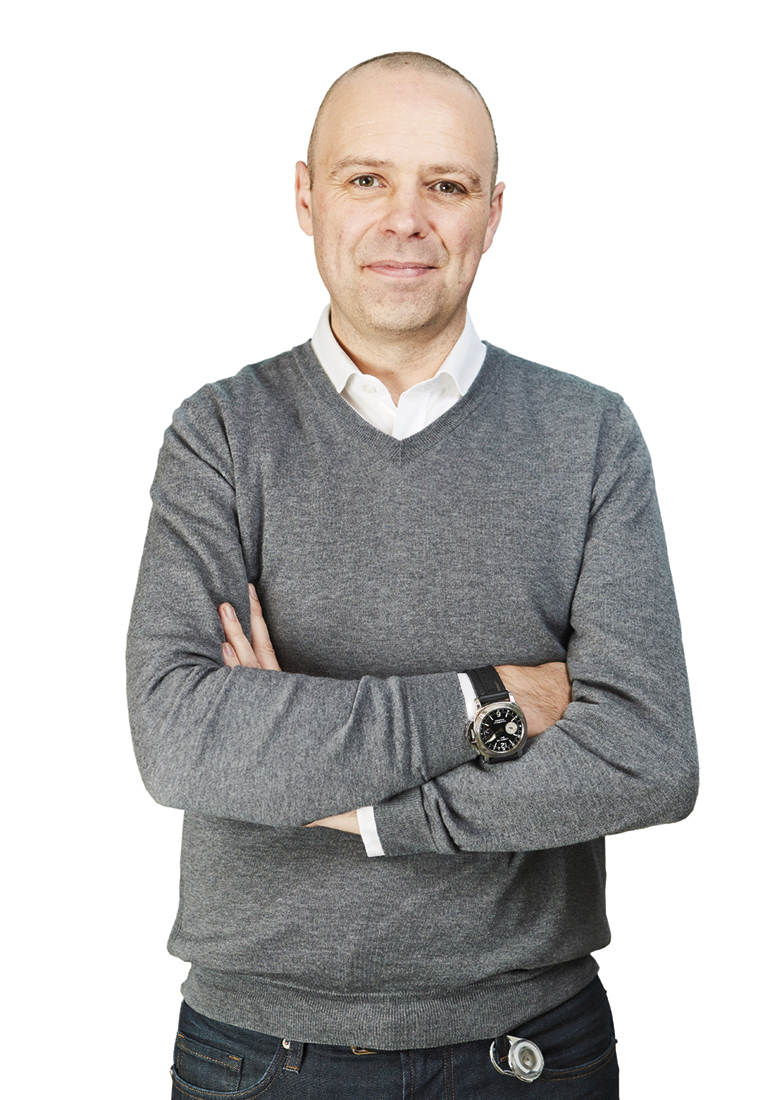
Today, nearly half of all ITV Studios staff and half of Studios’ UK labels are based, or have bases, outside of London. For example, the convention’s host city, Cardiff, is home to Twofour Group labels Boom and Boomerang. The former produces programmes for ITV, Channel 5, BBC One and BBC Wales, as well as 400 hours a year of Welsh-language content for S4C.
Boomerang is the group’s factual entertainment company, producing international hit programmes for Channel 4 and Channel 5. ITV Wales, meanwhile, has collaborated with award-winning factual label Shiver to create Shiver Cymru.
Over the past eight years, ITV Studios has trebled in size to become one of the world’s leading distributors and independent producers.
It is also the largest commercial production company in the UK and the largest independent producer of non-scripted content in the US.
The group has production bases in 12 countries, making over 8,900 hours of original content annually. In 2018, it secured 249 new commissions and 201 recommissions. UK revenues were broadly flat at £695 million.
“The foundation stone of the business, both in the UK and globally, is great creative talent and great production talent,” said Bellamy. “Imbuing them with a sense of trust and freedom, and creating a culture for them to do their best work, is fundamental to the business all across the world.”
"You get the best out of people if you give them creative autonomy"
Wark asked how acquired companies were nurtured and set on their path to expansion. How did that operate from company to company?
“It’s a simple philosophy,” said Bellamy. “We believe that you get the best out of people if you give them creative autonomy – so, they continue to have a culture where it still feels like they’re masters of their own company, with a strong creative, entrepreneurial spirit. And that philosophy runs all the way through the group.
“That doesn’t mean we’re absentee landlords: we absolutely support and engage constructively with production companies and producers but, fundamentally, we believe the way in which you narrow the odds on coming up with more hit shows is creative autonomy and having trust in people.”
Bellamy’s theme chimed with that of the Creative Cities Convention and offered proof that the old London-centric commissioning mindset that saw production in and for the nations and regions as an onerous regulatory obligation is fast evaporating.
Asked by Wark if there had been a tipping point in favour of regional production, Bellamy said the extent of change for productions outside London had been profound.
"We’re seeking great creative talent wherever they may be"
“All too often, it was all about obligation and regulation, but now, sitting in my chair, what you’re thinking about is commercial opportunity,” he said. “And the commercial opportunity today is huge for any production group that has a reach outside of London.”
The nations and regions, he said, provided a “key plank” for ITV. “We employ 900 full-time staff. We have major production bases in Glasgow, Manchester, Leeds, Plymouth and Cardiff. But, above and beyond that, we’re seeking great creative talent wherever they may be.”
ITV Studios’ labels are making shows in the nations and regions across all genres, both for ITV and for rival broadcasters BBC, Channel 4, Channel 5 and Sky. They include Poldark (filmed in Cornwall by Mammoth Screen), Cold Feet (Big Talk in Manchester), Line of Duty (World Productions in Northern Ireland), Shetland (SilverPrint Pictures in the Shetlands and mainland Scotland), Victoria (Mammoth Screen in Yorkshire), Vera (SilverPrint Pictures in north-east England) the Educating series (Twofour, all around the UK), and Code Blue: Murder (Shiver Cymru in Cardiff).
“There’s never been a more exciting time to be in television,” argued Bellamy. “In 2017, there was something like $53bn of content spend in the top 25 markets alone.
“A big thing we’ve focused on is diversifying the business. Last year, in drama, we made more drama for Channel 4, BBC and Sky than we did for ITV. So, diversification has been an important part of the ITV Studios story.” The group also includes ITV’s in-house productions arm, which is responsible for two of British TV’s flagship soaps, Coronation Street, made at MediaCity in Manchester, and Emmerdale, produced in Leeds. How, asked Wark, has he gone about raising the game of his in-house teams?
“It’s very easy to forget that the in-house team is already hugely successful,” he said. “The sheer success of shows such as the soaps – the audience share was up last year – the daytime shows, also up this year… We’re very lucky that we have a lot of strength there. The bottom line is the combination of getting the right talent in place and having the right culture.”
Despite its many acquisitions, organic growth had been crucial to ITV Studios, Bellamy maintained: “Take Tom McLennan, creative director in the North for ITV Studios Entertainment, based in Manchester. Four years ago, he was overseeing 200 hours of television, including Jeremy Kyle. Today, that’s gone up to 800 hours.”
The session closed with Bellamy being asked what advice he’d give local indies about “going global”.
“Think local in terms of creativity,” he said. “One of the mistakes people sometimes make is that they think the way to go global is to come up with a global idea when, actually, particularly in drama, there’s a real trend towards the specific or the local.
“Then, you need to make sure you’ve got a partnership with someone who has the ability to turn local success into something that can reach the global markets very quickly.”
The annual Creative Cities Convention took place 1-2 April and was organised jointly by the BBC, ITV, Channel 4, Channel 5 and Pact. The inaugural event was in Leeds in 2018. Other speakers included BBC Three controller Fiona Campbell, director of BBC Cymru Wales Rhodri Talfan Davies, Channel 5 director of programmes Ben Frow, Scottish broadcaster Ayesha Hazarika, BBC Two channel editor Patrick Holland, Channel 4 CEO Alex Mahon, Pact CEO John McVay and Bad Wolf co-founder Jane Tranter. Commissioner one-to-one sessions were held over the two days. The convention featured a ‘Big city challenge’, which previewed pitches by the contenders to host next year’s event – Glasgow, Newcastle Gateshead and Nottingham.

